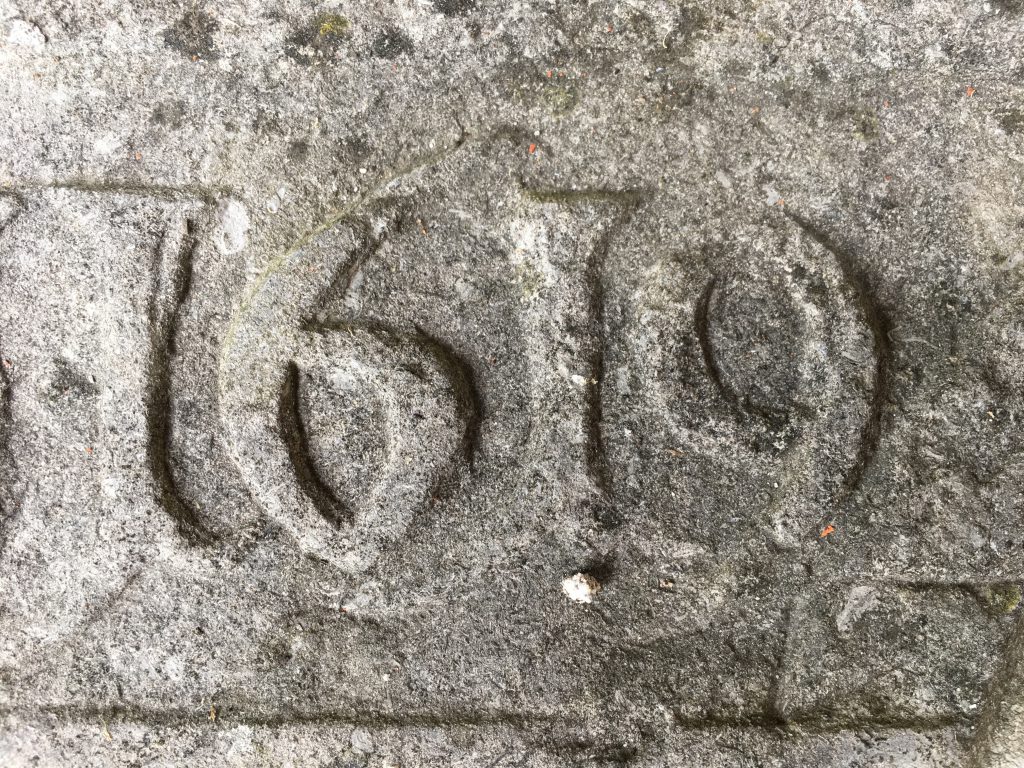
Published September 17, 2020
It has been a year since the New York Times kicked off a national controversy by devoting an issue of its Sunday magazine to the 1619 Project, a factually flawed effort to portray all of American history as little more than the product of slavery and racism. Since then, our country has been convulsed by a cultural revolution dedicated to the proposition that America is a systemically racist country. This is no coincidence.
In the wake of the death in May of a black man named George Floyd from what gives every indication of having been mistreatment while in police custody, mass protests against allegedly endemic police racism spread across the country. Those protests soon devolved into rioting, looting, and — especially in Portland — daily violence in behalf of vaguely defined revolutionary goals. All of this has occurred despite extensive evidence that claims of “systemically” racist mistreatment of blacks by police are false.
Amid a national wave of monument destruction set off by the George Floyd disturbances, Portland rioters tore down a statue of George Washington, tagging it with graffiti such as “White Fragility,” “F*** Cops,” and “1619.” When Charles Kesler of the Claremont Institute responded by dubbing the disorders “the 1619 riots,” Nikole Hannah-Jones, organizer and lead essayist of the 1619 Project, tweeted that “it would be an honor” to have the statue-toppling and riots so named.
This was clarifying, because Hannah-Jones’s essay for the 1619 Project had provoked divergent responses. In her essay, she describes her childhood embarrassment at her father’s patriotism. To the young Hannah-Jones, her father’s reverence for America seemed a degrading acceptance of black subordination and marginality. Now, however, she says she cherishes her father’s patriotism, finally grasping that it rested on the near-exclusive responsibility of black Americans for what little democracy this country can legitimately boast of.
Some praised Hannah-Jones’s essay for broadening and deepening American patriotism so as to more fully include black citizens. Others saw her feint in the direction of patriotism as a cover for what was in fact a hostile attack on America’s founders and our constitutional system. Her proud embrace of the statue-toppling and riots shows that the latter reading is closer to the mark.
Hannah-Jones was also prominent among the black staffers at the New York Times who objected to the publication of a June op-ed by Senator Tom Cotton. Cotton argued that if no other way could be found to quell the riots, the military might need to be deployed in order to do so. Echoing the arguments of campus radicals who cite “safety” to justify the suppression of conservative speech, several black staffers at the Times claimed that mere publication of Cotton’s op-ed placed them in physical danger. Here we see the affinity of the 1619 Project’s supporters for an ideology that rejects the fundamental freedoms at the heart of our constitutional system.
At the end of August, a commission appointed by Washington, D.C., mayor Muriel Bowser recommended that many of the most prominent monuments in our nation’s capital be removed, relocated, or “contextualized” on the grounds that those honored by them had “disqualifying histories,” such as participation in slavery, systemic racism, or mistreatment of persons of color. According to the commission, even the Jefferson Memorial and the Washington Monument should be subject to such changes. The reductio ad absurdum of monument revisionism is thus in sight. The Founders themselves may be literally pushed from their most prominent pedestals, this time by officials instead of rioters. The Bowser Commission is 1619ism in action, and some future president might well put its recommendations into practice.
In her essay for the 1619 Project, Hannah-Jones also identifies the agenda of the political Left with the authentic democracy belatedly infused into America’s story by its black citizens. Moreover, Black Lives Matter — the group most closely identified with the George Floyd protests, the 1619 riots, and the movement to abolish the police — is, according to one of its co-founders, a Marxist organization. The attempt to delegitimate America’s founders and the constitutional system they built is thus clearly designed to support a leftist transformation of American society. How could so radical a movement have gained purchase in what we used to think of as a center-right country?
The 1619 Project uncorked an agitated bottle of champagne. The imprimatur of the New York Times granted permission for a wholesale repudiation of our past to a generation long taught to devalue America and the Founding. After a quarter century of Howard Zinn’s distortions of American history, leftist textbooks, and the College Board’s revisionist AP U.S.-history curriculum, the civic collapse conservatives have warned of since Buckley’s God and Man at Yale is finally upon us.
The 1619 Project laughably implies that slavery and racism are given short shrift in today’s American-history classes. To the contrary, slavery and racism have been major themes of history textbooks for decades. The 1619 Project takes that focus to another level — singling out slavery, and its aftermath, as the essence of American history and dismissing the remainder of the story as dross.
There is more at work here than decades of Zinn and his leftist progeny, however. The collapse of traditional forms of family, community, and religion has helped to bring on the woke revolution. A generation for which family breakup is rife, family formation delayed, loneliness endemic, and secularism on the rise is ill disposed to feel gratitude or loyalty to a shared community, nation, or civilization. There is little left to believe in beyond our moral bottom lines.
Nearly all Americans rightly agree that outrages such as slavery, racism, and genocide are bad. But when that is all that remains to put your faith in, a never-ending hunt for racism and genocide will become religion for many. That is why the children of the most tolerant society in history now subject themselves to endless, guilty self-lashing with the sins of the past. That is why they restlessly pursue a mysteriously “systemic” racism whose presence can seldom be defined or disconfirmed.
The battle over the 1619 Project and the woke revolution it helped to usher in has moved to the center of American politics. Today it makes every bit as much sense to consider the 1619 Project because an election is approaching as because our schools are reopening. The most revealing difference between Joe Biden and Donald Trump may be that Biden believes America is systemically racist, while President Trump does not. Assorted Democratic candidates referred to America’s allegedly systemic racism throughout the primaries, no doubt in part because such rhetoric had been effectively blessed by the New York Times via the 1619 Project. Indeed, the Times is now filled weekly with in-depth stories detailing the history of American racism and arguing that this is the key to understanding the present. Meanwhile, President Trump has increasingly criticized left-biased history, statue-toppling, and the Bowser Commission. In a particularly welcome development, at Trump’s direction the director of the Office of Management and Budget just issued a memo barring, for all federal employees, diversity training based on “critical race theory” and the concept of “white privilege.” This election will turn in part on how receptive Americans are to 1619-style claims that racism is built into America’s cultural DNA.
What is to be done about the assault on America’s history and Founding principles embodied by the 1619 Project and the woke revolution it has helped to launch? In the short term, the answer is to reelect President Trump. Although most conservatives understand this, a few still do not. Trump’s conservative opponents highlight his imperfections of character, while downplaying the immensity of a cultural battle in which everything Americans value is now at stake. There has never been an election in which one party has so entirely rejected America’s founding story in favor of what is, in effect, a revolutionary repudiation of our system. American history is on the ballot in 2020, and with it the very survival of our founding principles.
Wilfred McClay’s wonderful new U.S.-history textbook, Land of Hope, points to a way out in the long term. For decades, the conservative education establishment has backed the Common Core, hoping to broker a least-common-denominator national curricular deal between Right and Left. The result has been watered-down reading and math standards, disappointing test scores, and a history curriculum solidly in the control of the Left.
The Common Core strategy has failed. Yet the conservative education establishment still hopes to hammer out a de facto national history and civics curriculum, as if the leftist education establishment would not commandeer that process, just as it has in the past. The answer instead is for traditionalists to create alternative textbooks and instructional materials — like McClay’s — and have them adopted by sympathetic states and school districts. Once a genuinely independent and exciting approach to American history begins to catch on at the grassroots, many districts will be freed from unbalanced and tendentious textbooks, while the education Left will be pressured by competition to move towards the center.
Federalism and local control remain the best defenses against a suffocating national education orthodoxy. Choice and competition are keys to the American experiment. Yet the conservative education establishment continues to reject these ideals in its self-defeating quest for a de facto national curriculum. The result has been perhaps the most damaging conservative failure of the modern era. Conservatives have lost the education battle — above all on U.S. history. Without a return to federalism and local control, the tide will not be turned.
Stanley Kurtz is a senior fellow at the Ethics and Public Policy Center.








